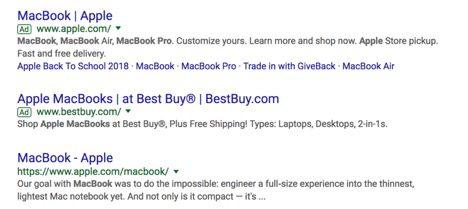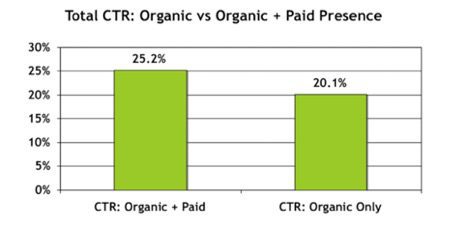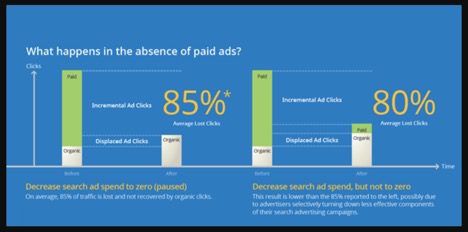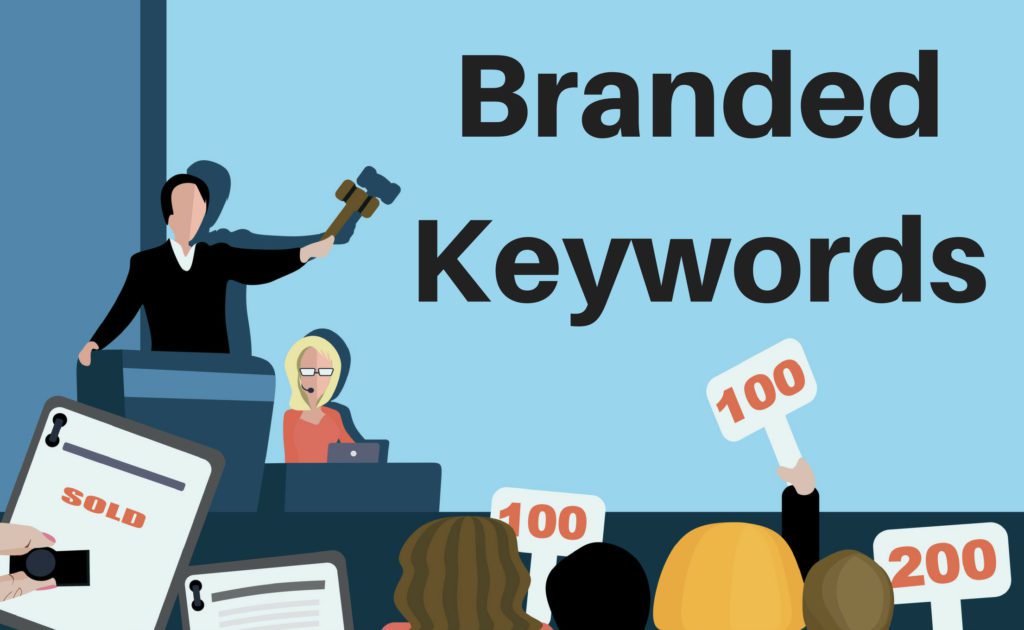Tl;dr yes. At CG Life, because we’ve been doing PPC strategy and paid search campaigns for our clients since what feels like the beginning of recorded history, we’ve seen a lot of things. As such, we’ve built a core philosophy around best practices in paid search. One of the core best practices we adhere to is, it’s always best to bid on your branded keywords. Although there are two schools of thought on this paid search issue, we’ve laid out a comprehensive argument for why bidding on your branded keywords makes sense for your brand, no matter what industry you’re in.
Branded Terms = Brand Awareness
Most companies spend years and years building their brands into something people are able to recognize and have an association with. Think of a company like Nike, launched by Phil Knight selling shoes out of the trunk of his car in the mid-1960s. Today, it’s one of the biggest, most recognizable brands in the world. Everyone knows the Swoosh logo and the products that Nike sells. Everyone can pick out the swoosh logo and make some kind of association (good or bad) with the brand. When it comes to paid search, owning your brand in the search engine results pages (SERP) is as vitally important for cultivating your own brand awareness as it was for Phil Knight and others for the brand they spent years building. You wouldn’t want one of your competitors to siphon away traffic simply because you’re not bidding on those branded keywords in your PPC strategy, would you? Building your brand awareness is how you’re ultimately going to increase your market share. If you’re in a highly competitive industry (life science, for example), that brand awareness is a huge part of how you’ll gain repeat customers and purchases. Using our Nike example, if they’re not bidding on terms like “Nike shoes” or “buy Nikes” and someone like Zappos comes along and starts bidding on those branded terms, suddenly Zappos will start to put a dent in Nike’s market share and siphon traffic away from Nike. Although many of us will likely never have the advertising budget that Nike has, the example still illustrates how important paid search can be to your brand awareness efforts. If you cede brand awareness to your competitors by not bidding on your pay per click branded keywords, you may begin to lose market share.
Branded Paid Searches are Further Along in the Buying Cycle
If someone is searching for your branded keywords, they’re probably already familiar with your brand and what you sell, and therefore are much closer to actually buying from you than someone searching a general, non-branded term. Consider this example of the search results for “apple macbook”: [caption id=“attachment_2722” align=“alignnone” width=“468”] Source: Google[/caption] You’ll notice that the first result is from Apple, itself, because they obviously want to “own” a branded search. Someone’s searching for their brand by name, and Apple is bidding to ensure they own the first paid search result. The next result is from Best Buy, who are bidding on the same keyword. Most likely, someone searching for “apple macbook” is closer to a purchase decision than someone searching for something general like “laptop”. This is someone that knows the brand and model that they want to buy, and has most likely already made up their mind that they’re going to buy it. There’s simply no reason to not bid on that branded keyword if you’re Apple. There’s a strong possibility that this consumer is ready to buy your product, and there’s no reason to let a competitor like Best Buy steal a sale away from you. You might ask, is it legal for Best Buy to bid on Apple’s keywords? Yes. Google’s official policy on trademarks mentions that you’re not able to use competitors’ trademarked terms in your PPC ad copy. However, no such language appears in the policy related to bidding on non-trademarked brand terms. So, what Best Buy is doing is perfectly legal, and ever more reason for you to take a defensive approach to fend off your competitors by bidding on your branded terms.
Source: Google[/caption] You’ll notice that the first result is from Apple, itself, because they obviously want to “own” a branded search. Someone’s searching for their brand by name, and Apple is bidding to ensure they own the first paid search result. The next result is from Best Buy, who are bidding on the same keyword. Most likely, someone searching for “apple macbook” is closer to a purchase decision than someone searching for something general like “laptop”. This is someone that knows the brand and model that they want to buy, and has most likely already made up their mind that they’re going to buy it. There’s simply no reason to not bid on that branded keyword if you’re Apple. There’s a strong possibility that this consumer is ready to buy your product, and there’s no reason to let a competitor like Best Buy steal a sale away from you. You might ask, is it legal for Best Buy to bid on Apple’s keywords? Yes. Google’s official policy on trademarks mentions that you’re not able to use competitors’ trademarked terms in your PPC ad copy. However, no such language appears in the policy related to bidding on non-trademarked brand terms. So, what Best Buy is doing is perfectly legal, and ever more reason for you to take a defensive approach to fend off your competitors by bidding on your branded terms.
Pay Per Click: Pay Less, Get More Bang For Your Buck
Now, if you’re appearing as the first paid result, you’re likely going to see very strong click-through rates (CTR), as well. A higher CTR is going to have beneficial effects on your Quality Score, which is going to improve your overall account health. Branded keywords are a steal because they have a ton of volume and can be easily targeted by both ad copy and landing page. So, you’ll end up seeing a lower cost-per-click (CPC), making them both affordable and effective. The more signals you can send to Google that searchers will find what they’re looking for because of your ads, the better. In general, you’ll also tend to see a higher conversion rate on branded keywords, making them a win-win in terms of paid search.
Branded Keywords Help You Own Valuable SERP Real Estate
The core argument against bidding on branded keywords seem to fall into the “Why should I pay for it when I’m ranking organically for it?” realm. There was a study published by PPC Hero that touched on this very subject, and the results were quite interesting. Most likely, you’re already getting the top organic result for your brand. But, having a paid ad does more to reinforce your presence to the searcher. This PPC Hero study showed that CTRs increased by 5.1% when a brand had an organic and paid listing, as opposed to just an organic result. [caption id=“attachment_2719” align=“alignleft” width=“468”] Source: PPC Hero[/caption] Plus, if your competitors try to bid on your branded terms (and we know they already are), this will increase the likelihood that you get the click rather than your competitor. PPC Hero’s article goes on to state: [caption id=“attachment_2720” align=“alignright” width=“468”]
Source: PPC Hero[/caption] Plus, if your competitors try to bid on your branded terms (and we know they already are), this will increase the likelihood that you get the click rather than your competitor. PPC Hero’s article goes on to state: [caption id=“attachment_2720” align=“alignright” width=“468”] Source: Think With Google[/caption]
Source: Think With Google[/caption]
“You can’t capture all searches/searchers organically, even with the top organic result. There are some searchers who prefer to click paid ads and some who prefer organic listings. The truth of it is, because quite a few paid ads come up above the organic results, traffic is received from paid ad results that is not replicated in organic traffic if paid ads are shut off, branded terms and campaigns included.”
The article included an infographic from Google on the subject showing in the absence of paid ads, an estimated “85% of all click traffic is lost and not replaced by organic clicks.” What do you think? Do you still have questions about your paid search efforts or want to know more about maximizing your branded keywords? Contact us at CG Life and we’ll help you out.
